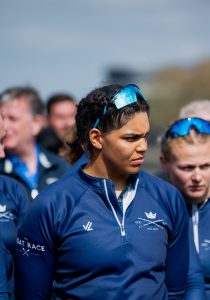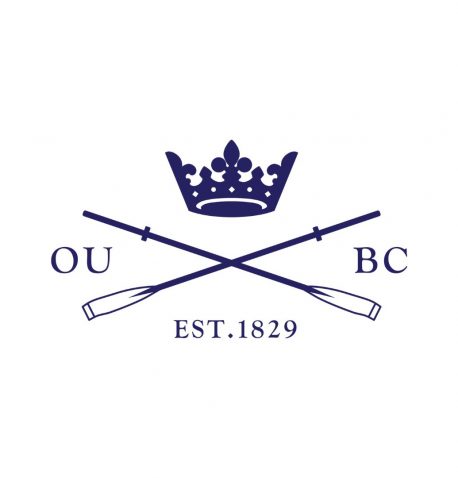The student-athletes contesting one of the world’s oldest sporting rivalries were back to work after The Boat Race. We caught up with Oxford’s Kyra Delray, who also found time to get married.
How has life been since the Boat Race?
Life has been good! Less busy with rowing but very busy planning a wedding. Although, me and my wife, Saskia, got married last year in Malibu, California, we had a wedding with our family and friends in Devon in June, which was just simply the best weekend ever. My teammate and friends since I was 14, Heidi Long, gave a speech! Apart from that, I’ve been busy catching up on PhD work and enjoyed being a spectator, cheering on my teammates at Henley Regatta and enjoying the sunshine!
What are your strongest memories of the day?
 My strongest memory of Boat Race Day is the crowd. I knew the boat race was popular but I never quite expected it to be so loud and exhilarating. The cheering as we took our boat out of the bay to the water is something I have never experienced anything like before and siting on the start line whilst we waited for the race to start, everywhere I looked was just crowds of people, boat, helicopters- it was insane!
My strongest memory of Boat Race Day is the crowd. I knew the boat race was popular but I never quite expected it to be so loud and exhilarating. The cheering as we took our boat out of the bay to the water is something I have never experienced anything like before and siting on the start line whilst we waited for the race to start, everywhere I looked was just crowds of people, boat, helicopters- it was insane!
What are your summer rowing plans?
Oxford targeted the Island (student 8+) at Henley Royal Regatta this year which unfortunately I was ineligible for because of racing internationally so my training this summer is about staying fit, good rehab and enjoying cross-training like long cycle rides and running.
Tell us about your PhD. Who is your funding body?
My PhD is in Health Data Science, funded by the Engineering and Physical Sciences Research Council (EPSRC). I’m working on causal machine learning with the department of Statistics as well as the wearables group at Oxford. Our aim is to better understand the causality of time series and wearable data to short and long term health outcomes in machine learning models. We simulate counterfactuals and generate causal inference for useful interventions for health and wellness.
We’re working to utilize the rise of digital health data- smartwatches, smartphones and apps, and find what is the chick and the egg (or the cause and effect) of mental and physical health. We’re examining movement, sleep and cardiovascular patterns as well as mood, illness and injury. We’re also exploring fairness in machine learning prediction models by looking at explainability of the cause and effect of predicted outcomes.

How did it feel to get back to the department after the intense winter and spring of a Boat Race campaign?
Great, my group are so supportive and watched the boat race and so it was nice to be able to spend more time with them working on our projects after the end of the campaign (until next year).
What’s your advice to anyone else trying to juggle a PhD with an elite sporting programme?
Communicate with your supervisor, be honest about what/when you can commit time to your projects. A supervisor that is a good fit will understand you want to succeed in your PhD but also really care about succeeding in your sport. This doesn’t mean less work, it means knowing when to push on (summer) and when you won’t have as much time (boat race month). If everyone is on the same page with this then it will make for a more effective working pattern, less guilt and probably a better project.



